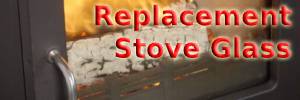Thousands of people were in hospital with seasonal viruses last week – including rising numbers with norovirus – as NHS staff continue to deal with a range of winter pressures.
The latest weekly update shows there were an average of 452 patients with diarrhoea and vomiting symptoms in hospital each day – up by a fifth from 377 in a fortnight, and nearly a third higher than this time last year (344).
There were also an average 3,949 patients with Covid (up 22% on 3,248 one month ago) and 1,416 patients in hospital with flu each day in the week ending January 14, including 81 in critical care.
Demand for beds remained high, with around 19 in every 20 adult beds occupied.
Despite the sustained pressure on services, the number of hours lost to ambulance handover delays has significantly improved, down 43% in a week from 28,872 to 16,554. While the number of ambulances arriving at hospitals are up by one quarter on last year – up to 90,294 from 72,009 (w/e 15 Jan 2023).
The reduction in ambulance waits shows the NHS’s urgent and emergency care recovery plan is making an impact alongside extensive and robust winter plans.
The rollout of a host of measures in the plan are helping to improve hospital flow, reduce waiting times and increase the number of ambulance hours on the road, with thousands of extra beds to boost capacity for patients.
The number of core beds available to admit patients to wards increased by 1,840 in just two weeks, to 99,459.
NHS 111 staff answered 355,739 calls in a week, over 54,000 more than last year – with almost three quarters of calls answered in 60 seconds.
Staff continued to work to get as many patients as possible home when they were ready, but the latest data shows last week there was an average of 13,637 people each day in hospital who could not be discharged despite being medically ready. That is the highest this winter but lower than the 14,036 total at this point last year.
NHS national medical director, Professor Sir Stephen Powis, said: “These figures show this continues to be a challenging winter, with our staff facing a combination of considerable pressures including winter viruses, high bed occupancy and the knock-on effects from strikes, while this week’s cold snap could see a jump in the number of people needing care.
“Staff must also contend with continued issues discharging patients who are medically fit due to a lack of social care capacity and a year-on-year increase in ambulances arriving at hospitals.
“But there are reasons for optimism, with the hard work of staff paying off to reduce ambulance handover delays, and almost three quarters of 111 calls being answered within a minute – which is all crucial in ensuring people get the help they need as quickly as possible.
“I am grateful for the continued hard work to keep patients safe and give them the best possible care, and as always we encourage patients to continue to only use 999 and A&E in an emergency and use 111 online for other conditions.”
Issued by NHS England Thursday January 18th 2024
|
|
||||||
Check Todays Deals on Ebay.co.uk Your Comments:
Custom Search

|
You are in:
UK /
Kenilworth / West Midlands
Find any Town in the UK, or Use UK map Local Google MAP for Kenilworth Check Todays Deals On Amazon.co.uk Check Todays Deals on Ebay.co.uk 


 Be Seen - Advertise on Qlocal Corporate Sponsors
Southport Piano and Music Academy Washroom Services Maximum Grounds Maintenance Southport Garden Services Ormskirk Garden Services Sanitary Bins Nappy Bins & Waste Disposal Confidential Shredding Services Legionella Risk Testing London Washroom Services Croydon Washroom Services Hounslow Washroom Services Wandsworth Washroom Services Havering Washroom Services Sanitary Bins London Clinical Waste London General Waste London Legionella Testing London Shredding London Tatoo Waste London Preston Bird Control Blackpool Bird Control
UK, Local Online News Community, Forums, Chats, For Sale, Classified, Offers, Vouchers, Events, Motors Sale, Property For Sale Rent, Jobs, Hotels, Taxi, Restaurants, Pubs, Clubs, Pictures, Sports, Charities, Lost Found
kenilworth,
kenilworth News,
|
|||||




 Reply With Quote
Reply With Quote